Get affordable attorney help for your personal legal needs
Get affordable attorney help for your personal legal needs
Ongoing legal support from our trusted network of attorneys - for less than the cost of one hour at a law firm.* Your plan includes unlimited 30-minute consults on new matters, document reviews, and essential tools.
Get ongoing legal support from trusted attorneys—for less than the cost of one hour with a traditional lawyer.* Your plan includes unlimited 30-minute consults, document reviews, and essential legal tools.
Trusted ongoing legal support for life’s what-ifs
Trusted ongoing legal support for life’s what-ifs
Personal Attorney Plan
/mo billed every 6 months at $119** /mo billed annually at $199**
- Unlimited 30-minute attorney consults on new legal matters†
- Attorney review for contracts and key documents (10 pages included)‡
Attorney review and unlimited revisions of your LegalZoom estate planning documents (no page limit)
Annual legal review with an attorney to help ensure your estate plan is up to date, available after 6 months
Library of 150+ frequently used legal templates
Rich editor to customize our LegalZoom forms
Unlimited access to eSignature
25% off additional attorney services through our attorney network & 10% off LegalZoom products
Family coverage for spouse and dependent children


Deborah B.
Estate Planning
37 Years
Licensed in California
What sets
us apart

The #1 choice for online attorney services—trusted by over 1.7 million people for business and personal legal support§



Get attorney services plus unlimited eSignature, attorney-drafted forms, and copyright registration—all for ~$1 a day



Vetted, experienced attorneys licensed in all 50 states


Varies by provider
Experienced attorney network with a 4.8-star average rating

Varies by provider
Varies by provider
An easy-to-use and tech-driven platform that helps you connect with attorneys and manage your legal needs

Varies by provider
Varies by provider
Provides legal guidance on topics such as estate planning (wills and trusts), landlord-tenant issues, employment rights, real estate transactions, divorce and custody, power of attorney, prenuptial agreements, and traffic or accident matters

Varies by provider
Varies by provider

LegalZoom

Traditional law firms

competitors
The #1 choice for online attorney services—trusted by over 1.7 million people for business and personal legal support¶



Get attorney services plus unlimited eSignature, attorney-drafted forms, and copyright registration—all for ~$1 a day


Varies by provider
Vetted, experienced attorneys licensed in all 50 states


Varies by provider
Experienced attorney network with a 4.8-star average rating

Varies by provider
Varies by provider
Tech-driven and easy-to-use platform for streamlined scheduling and communication with attorneys

Varies by provider
Varies by provider
Provides legal guidance on topics such as estate planning (wills and trusts), landlord-tenant issues, employment rights, real estate transactions, divorce and custody, power of attorney, prenuptial agreements, and traffic or accident matters

Varies by provider
Varies by provider
Trusted legal help when life gets complicated
Trusted legal help when life gets complicated
Here’s what your Personal Attorney Plan includes to guide you through personal legal matters—without the stress or the high cost.

Unlimited 30-min consults on new matters
Popular personal legal topics include:

Estate planning

Renter or landlord issues

Employee rights

Consumer finance

Real estate

Family law
Start my plan
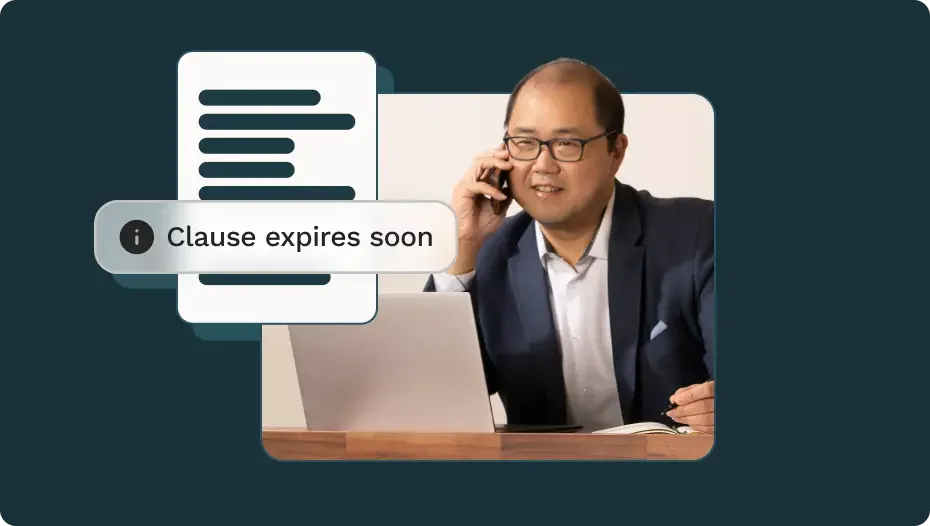
Legal document review
Get attorney reviews for your contracts and legal documents (up to 10 pages per document) to identify potential risks. Enjoy attorney reviews and unlimited revisions for your LegalZoom estate planning documents with no page limits for peace of mind.
Start my plan
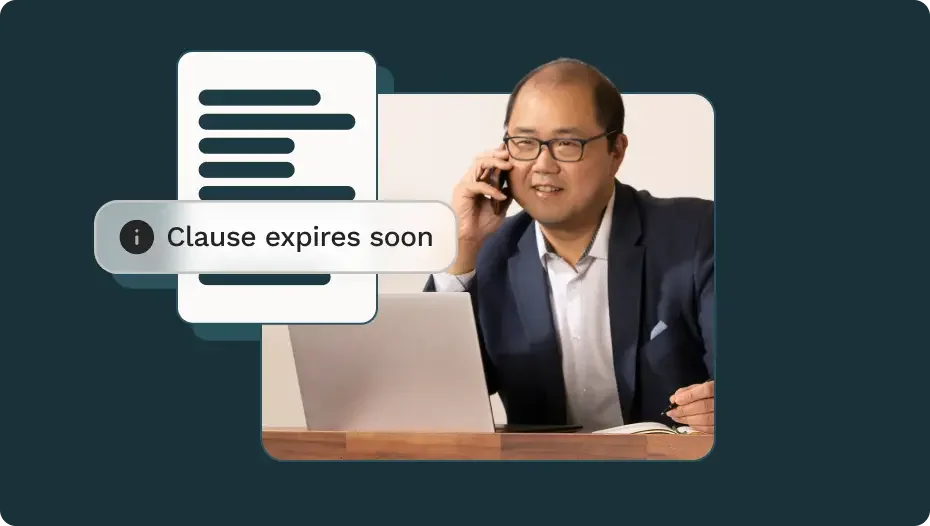

Exclusive discounts
Get 10% off other LegalZoom products and 25% off additional attorney services so you can maximize the value of your membership and access trusted, affordable help from experienced attorneys for more complex legal matters.
Start my plan
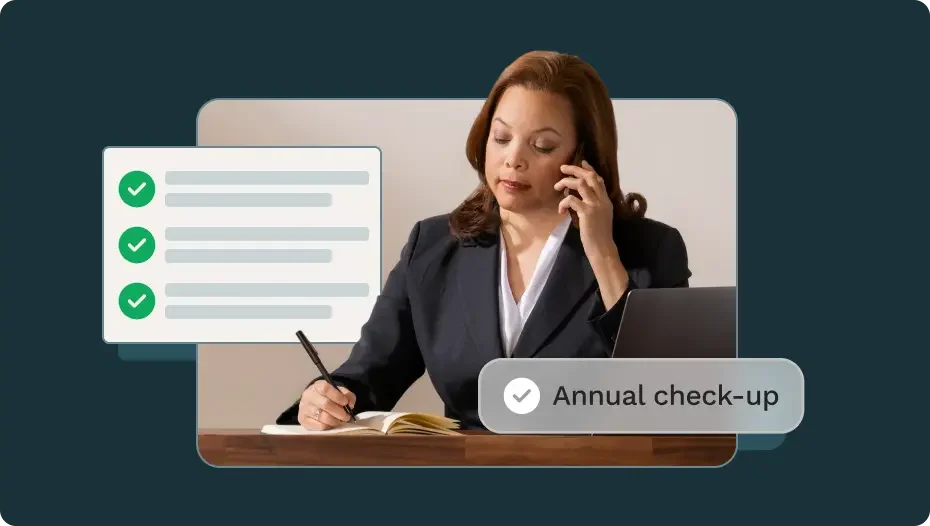
Family coverage & annual check-up
Extend attorney consultations to your spouse and dependent children, so your whole family can get trusted support for personal legal matters. You can also consult on behalf of children under 18.
After six months, your plan includes a one-hour annual legal review with an attorney to help ensure your estate plan stays up to date as your life changes.
Start my plan
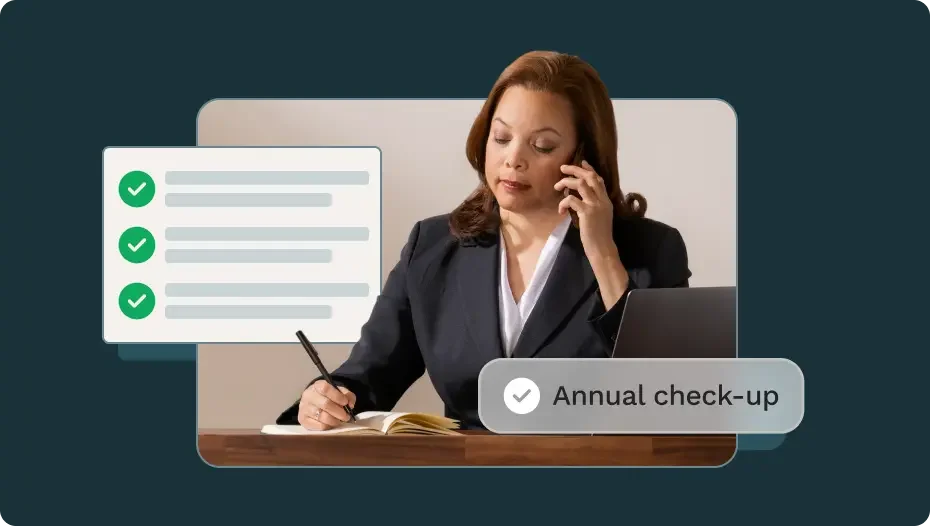
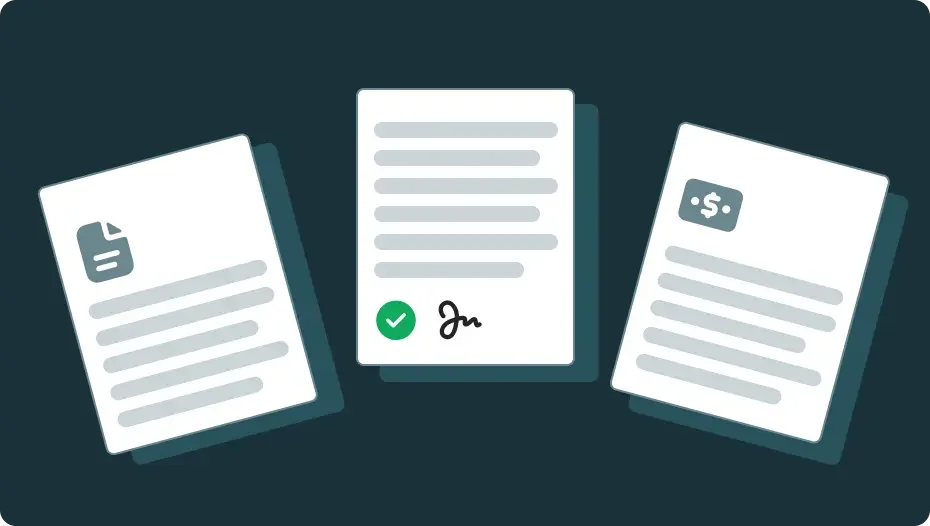
Other essential tools
Get unlimited e-signatures and access to a library of over 150 customizable legal templates—so you can handle everyday legal tasks like rental agreements, loan forms, or name changes easily and affordably.
Start my plan
Experienced LegalZoom network attorneys available whenever you need them
Experienced LegalZoom network attorneys available whenever you need them
Over 1.7 million individuals have trusted us to support their business and personal legal needs through our Attorney Plan
Over 1.7 million individuals have trusted us to support their business and personal legal needs through our Attorney Plan


Kady C.





I’m a New York-licensed attorney with 24 years of legal experience. My diverse legal background spanning across trust and estate planning, business transactions, and immigration law enables me to provide practical and well-rounded legal guidance to clients.

Jason M.





I'm a North Carolina-licensed attorney with 29 years of legal experience, specializing in business and personal law, including litigation and disputes. I bring a practical, results-driven approach to legal guidance.

Kady C.





I’m a New York-licensed attorney with 24 years of legal experience. My diverse legal background spanning across trust and estate planning, business transactions, and immigration law enables me to provide practical and well-rounded legal guidance to clients.

Jason M.





I'm a North Carolina-licensed attorney with 29 years of legal experience, specializing in business and personal law, including litigation and disputes. I bring a practical, results-driven approach to legal guidance.

130+ vetted, experienced attorneys licensed in all 50 states

Our network of attorneys have an average of 15 years experience

900,000+ consultations provided by our network of attorneys
Find an experienced attorney near me
Why choose a LegalZoom Attorney Plan
Why choose a LegalZoom Personal Attorney Plan

Affordability
Ongoing attorney support for about $1/day—affordable, flat-rate legal help that costs less than a single hour with a traditional firm.*

Attorney Expertise
Work with vetted attorneys licensed in all 50 states—averaging 15+ years of experience and a 4.8 out of 5 rating—for guidance you can trust.

Accessibility
Connect with attorneys licensed in your state—no prep needed. Schedule consultations anytime through our simple, secure platform.
6 ways our attorney plans can help you and your family
6 ways our Personal Attorney Plans can help you and your family

Estate planning
Plan ahead with help creating a will, living trust, power of attorney, and other documents to protect your loved ones.

Real estate
Get guidance on buying or selling a home, resolving property disputes, handling foreclosures, or reviewing lease agreements.

Family matters
From marriage to divorce to child custody, our network of experienced attorneys can help you understand your rights and next steps.

Finance
Get help from an attorney who knows how to navigate bankruptcy, lawsuits, debt collection, and other credit-related issues.

Employment issues
Understand your options around employee agreements, compensation, benefits, severance, and more.

Other claims
An attorney can help you understand your options if you're facing issues like personal injury, property damage, or identity theft.
Start my plan
How to start getting attorney help in 3 easy steps
01
Pick a plan
Choose a 6- or 12-month
subscription that fits your budget
and gives you ongoing access to a licensed attorney.
02
Schedule a consult
Choose a vetted attorney based on your state and legal need through our easy-to-use platform, then schedule a time that works for you.
03
Get attorney help
Talk directly with a licensed attorney who can answer your questions, guide you through your issue, and provide personalized legal support.
Start my plan


What is a prepaid Personal Attorney Plan?
A prepaid Personal Attorney Plan is a subscription that gives you access to attorney advice and legal services for a flat rate—often costing less than hiring a traditional lawyer. It’s a simple, affordable way to get legal help when you need it.
How is a prepaid Personal Attorney Plan different than a regular lawyer?
Finding a traditional business or personal attorney who is trustworthy, familiar with your area and industry, and able to support your specific legal needs can be challenging. Final costs are often unpredictable, since attorney rates vary depending on the type of service and the time required.
With a prepaid Personal Attorney Plan, the hard work is done for you. Every attorney is reviewed and vetted for experience, legal knowledge, and trustworthiness. Because you pay a flat rate up front, pricing is clear and consistent.
Top guides to help with your personal legal questions
Top guides to help with your legal questions


How to recover unclaimed inheritance money
If a loved one has passed on but left unclaimed funds, you may be able to claim those funds for yourself.


The complete guide to legally changing your name
The path to changing your name differs depending on your reason for doing so. This guide walks you through every step.


Defamation, slander & libel explained
Being wronged or misrepresented is never pleasant, but not all insults are created equally.


What is public trust clearance and how do you get it?
Essential information on public trust clearance and how to obtain it for government roles.
Start my plan
Frequently asked questions
Are the attorneys knowledgeable in specific areas of law?
Yes. Attorneys in our network can answer questions covering a range of practice areas including estate planning, real estate, family law, tax law, personal claims, and more. Additionally, they are vetted for their expertise in personal legal issues, and you can search our directory for an attorney that focuses in an area of law you need help with.
Can I talk to an attorney who’s local to me?
Our network includes attorneys licensed in all 50 states who know about both federal and state laws, and we carefully screen attorneys for both professionalism and friendliness. Depending on your personal legal matter, an attorney with state-specific experience isn’t always needed, but they are always available.
Can an attorney assist me with filling out forms and filing them with the court?
You can use attorney consultations for guidance with forms and to ask questions about court filings. If you want help filing, our plans provide a 25% discount on your consulting attorney’s hourly rate (subject to their discretion and availability).
What are the limitations of the prepaid attorney plans?
One way we make attorney access so affordable is to limit each consultation to new legal matters. A new legal matter is a specific personal legal issue or document that you haven’t spoken to a network attorney about before. Also, our Personal Attorney Plans are set up to cover the most common areas our customers need help with. If you need to retain an attorney for more complex or ongoing legal matters, the Personal Attorney Plan provides a 25% discount on your consulting attorney’s hourly rate.
If I decide to cancel the plan, will you still assist me with the documents that I purchased?
If you decide you no longer need the plan and would like to cancel, you may still receive assistance from our customer care specialists for your purchased documents—but it should be noted that they are not attorneys and cannot provide legal advice.
How do I apply the 10% discount for other LegalZoom products if I’m a subscriber?
If you're a Personal Attorney Plan subscriber, you're entitled to a 10% discount on most LegalZoom products. The discount is automatically applied at checkout—no code needed.
Can I get an attorney to represent me in a lawsuit through the Attorney Plan?
The Personal Attorney Plan includes consultations where you can discuss legal matters—including lawsuits—with a licensed attorney. However, full representation in a lawsuit is not included in the plan benefits. If you need ongoing legal support or court representation, Personal Attorney Plan members can hire attorneys in our network separately at a 25% discount off their normal hourly rates, subject to the attorneys' availability and discretion.
How can I apply the 25% discount to additional attorney services?
To use the 25% discount, start by booking a consultation with the attorney of your choice. During the consultation, the attorney will guide you on how to proceed with any services that fall outside your Attorney Plan and how to apply the discount.
Start my plan
What our Personal Attorney Plan customers are saying
The LegalZoom process was easy and practical. It gives the opportunity to access legal resources effectively.





Vicki
Personal Attorney Plan customer
The convenience and responsiveness are well worth the subscription fee. [The] attorney was excellent!





Maria
Personal Attorney Plan customer
Received the information needed in a prompt timely manner. Questions answered concisely and politely.





Janice
Personal Attorney Plan customer
Ready to have a trusted legal partner by your side?
Start your Personal Attorney Plan today.
Ready to have a trusted legal partner by your side? Start your Personal Attorney Plan today
Start my plan
Need both business and personal legal help?
Need both business and personal legal help?


Need both business and personal legal help?
Need both business and personal legal help?



Sat–Sun 7 am–4 pm PT
Explore business attorney plans

*Based on an hourly rate of $250/hour for a lawyer from a traditional law firm.
**The service renews automatically at the purchase rate each term and is billed to your card. You may cancel online or by calling. Attorney services are fulfilled through Business Advantage Pro. For more details, please see our Contract Terms and Subscription Terms.
†You can schedule unlimited 30-minute consultations on any new legal topic. A new legal matter is a specific legal issue or document that you haven’t spoken to a network attorney about before. Our attorney plans are set up to cover the most common areas. If you need to retain an attorney for more complex or ongoing legal matters, the attorney plans provide a 25% discount on your consulting attorney’s hourly rate.
‡The plan attorneys will review documents longer than 10 pages on a flat-rate schedule, at the attorney’s discretion:
- 11-15 page documents: $69
- 16-25 page documents: $149
- 26+ page documents: Attorney will contact you to agree on a price (which will include your 25% discount)
§Based on a research comparing LegalZoom to other online legal service providers such as LegalShield and Rocket Lawyer, LegalZoom holds the largest market share.
ATTORNEY ADVERTISEMENT: Attorneys advertised on this site are independent attorneys. See the attorney in your area who's responsible for this advertisement. LegalZoom.com, Inc. is not an "attorney referral service" or a law firm. The information you provide to LegalZoom is not protected by attorney-client privilege. Get more information about this advertisement if you live in Alabama, Missouri, or New York.
*Based on an hourly rate of $250/hour for a lawyer from a traditional law firm.
**The service renews automatically at the purchase rate each term and is billed to your card. You may cancel online or by calling. Attorney services are fulfilled through Business Advantage Pro. For more details, please see our Contract Terms and Subscription Terms.
†You can schedule unlimited 30-minute consultations on any new legal topic. A new legal matter is a specific legal issue or document that you haven’t spoken to a network attorney about before. Our attorney plans are set up to cover the most common areas. If you need to retain an attorney for more complex or ongoing legal matters, the attorney plans provide a 25% discount on your consulting attorney’s hourly rate.
‡The plan attorneys will review documents longer than 10 pages on a flat-rate schedule, at the attorney’s discretion:
- 11-15 page documents: $69
- 16-25 page documents: $149
- 26+ page documents: Attorney will contact you to agree on a price (which will include your 25% discount)
§You are responsible for paying any government filing fees.
¶Based on a research comparing LegalZoom to other online legal service providers such as LegalShield and Rocket Lawyer, LegalZoom holds the largest market share.
Tennessee customers: Attorney services in TN are provided via a flat fee legal service offering from an independent law firm and are subject to your Limited Scope Representation Agreement with the firm. This portion of the LegalZoom website is an advertisement for legal services. LegalZoom does not endorse or recommend any lawyer or law firm that advertises on our site. The law firm responsible for this advertisement is LZ Legal Services, LLC (email: info@lzlegalservices.com). LZ Legal Services is authorized and licensed by the Arizona Supreme Court, license number 70123. LZ Legal Services is a subsidiary of LegalZoom.com, Inc..
ATTORNEY ADVERTISEMENT: Attorneys advertised on this site are independent attorneys. See the attorney in your area who's responsible for this advertisement. LegalZoom.com, Inc. is not an "attorney referral service" or a law firm. The information you provide to LegalZoom is not protected by attorney-client privilege. Get more information about this advertisement if you live in Alabama, Missouri, or New York.

